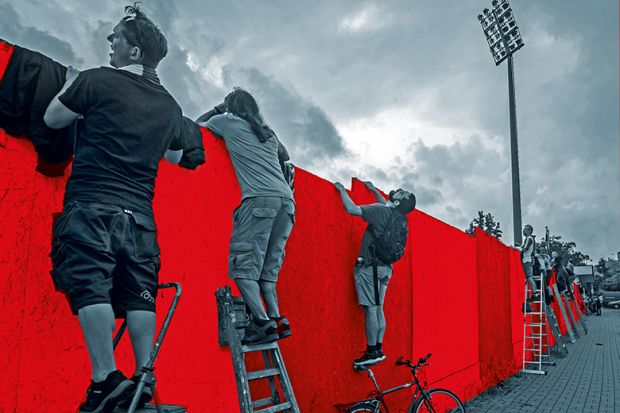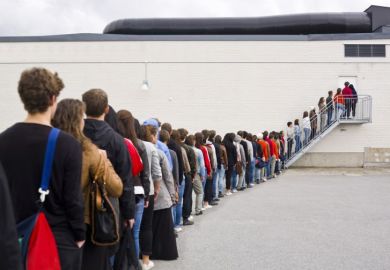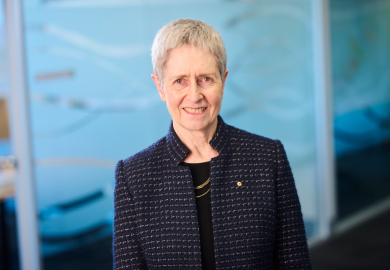It is hard to argue against the view that research developed predominantly through public funding should be openly accessible to everyone.
Of course, it was always possible to request a copy of a paper from the authors, but while that facilitated contact between readers and authors, it was inconvenient. Nor are preprints an adequate substitute. Their quality is highly variable, and their sheer quantity is such that even solid work typically attracts attention only after it is peer-reviewed and published in a recognised periodical.
But the removal of paywalls comes at a cost to scientists and institutions – and, in developing countries, that cost threatens to be prohibitive. As open access mandates proliferate, it has become increasingly clear that we developing world scientists are likely to be increasingly excluded from publishing in a large subset of journals.
Article processing costs (APCs) have been climbing well above inflation and well above the estimated costs of running open access services – which vary between $200 (£146) and $1,000 per paper. There are open access providers that operate within that price range, such as SciELO: Scientific Electronic Library Online, a Latin American digital library with more than 1,000 journals. However, the disciplinary journals in which we aspire to publish charge at least $2,500, while APCs of $4,000 are considered within the normal range. Springer Nature recently announced it will charge $11,390 for more than 30 of its prestigious Nature journals.
Here in Brazil, federal two-year research grants are capped at between $5,640 and $22,560, depending on researcher experience. Even our most generous research funding agency, São Paulo State’s FAPESP, caps its regular research grants at just under $30,000 per year. This sum is used to cover all equipment, consumables and services, including APCs.
When we mention these economic barriers to international colleagues, we are often told the solution is a waiver system for struggling economies. Indeed, Plan S, which spearheads the push for open access, stipulates that “the journal/platform must provide APC waivers for authors from low-income economies and discounts for authors from lower-middle-income economies”. But most Latin American countries with significant scientific output, such as Brazil, Argentina and Mexico, as well as large countries such as China and the Russian Federation, are classified by the World Bank as upper-middle-income economies. Scientists in these nations must therefore ask for individual waivers (based on, as Plan S puts it, “demonstrable needs”) after manuscript acceptance. If the waiver is denied or the discount insufficient, the only right an author has is to take the manuscript elsewhere, restarting the already lengthy revision process.
Of course, once all publications are in open access format, investments currently made in journal subscriptions can be transferred to cover APCs. But, in Brazil, journal subscriptions are negotiated by the CAPES Periódicos library consortium, which provides access to books, journals and scientific databases for research institutions nationwide. Its 2021 budget is about $75 million, of which around 70 per cent is likely to be spent on full-text access – so, about $50 million. Brazil publishes around 56,000 academic journal articles yearly, so even if all of that sum were allocated to scientific papers (to the detriment of other full-text access the portal currently provides, such as books), the average amount available per paper would be less than $1,000.
To avoid publishing becoming economically prohibitive, the push for open access above all other publication priorities must be substituted by a push for true inclusiveness. Required measures include, at the minimum, the extension of full waivers to lower-middle-income countries and the extension of substantial automatic discounts to upper-middle-income countries such as ours.
The scientific community must also ensure fair practice and pricing in academic publishing. Consortia of national funding agencies could collect and analyse publishers’ budgets, comparing them with estimated publishing costs and deciding on a maximum fair price that they are prepared to pay.
At an individual level, scientists should prioritise journals backed by scientific societies and active scientists in their fields, ensuring that at least part of journals’ profits returns to the scientific community. Ideally, collectives of researchers should create their own non-commercial “diamond” journals, which are free to both authors and readers, as a group of investigators in our area, bioenergetics, recently did. But researchers will need to support it; to that end, we commend the French plan to specifically support diamond venues, in an attempt to break the overpriced “glamour” journals.
As well-established professors in Latin America, we are resilient and capable of producing quality science under challenging conditions. However, if the current trend continues, we will be limited in our publication options by the price we can pay. We fear, in particular, that this state of affairs will lead to our students’ outputs being judged unfavourably, diminishing their chances of obtaining competitive positions around the world, in which they could excel.
The push for open access first, without a more comprehensive reform in academic publishing, will make science marginally more accessible. But it will also be much less inclusive.
Alicia Kowaltowski is professor of biochemistry at the University of São Paulo. Marcus Oliveira is associate professor of medical biochemistry at the Federal University of Rio de Janeiro. Ariel Silber is full professor of parasitology and Hernan Chaimovich is emeritus professor of chemistry at the University of São Paulo.
POSTSCRIPT:
Print headline: The push to open access will make science less inclusive
Register to continue
Why register?
- Registration is free and only takes a moment
- Once registered, you can read 3 articles a month
- Sign up for our newsletter
Subscribe
Or subscribe for unlimited access to:
- Unlimited access to news, views, insights & reviews
- Digital editions
- Digital access to THE’s university and college rankings analysis
Already registered or a current subscriber?








